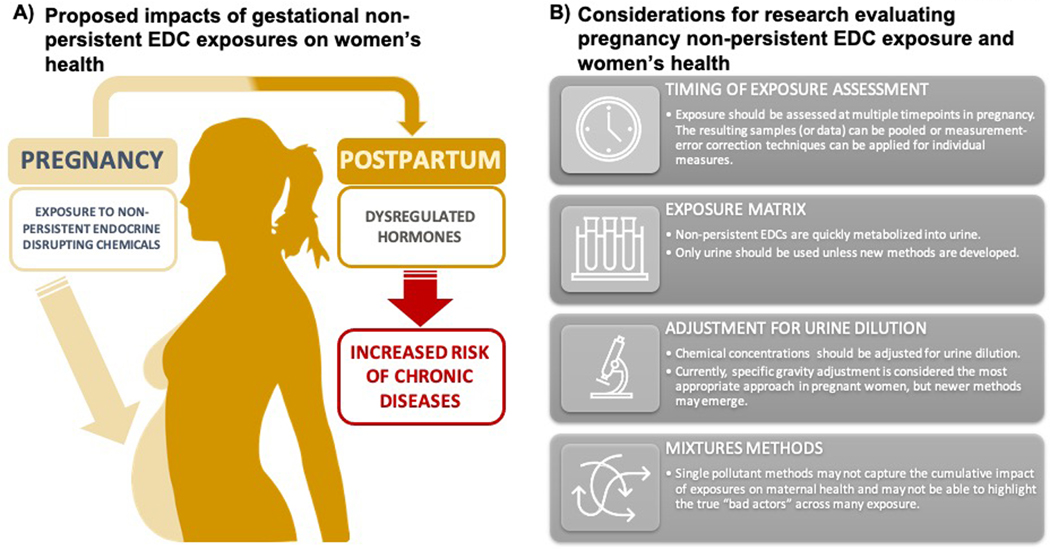Figure 1: Proposed role of non-persistent endocrine disrupting chemical (EDCs) exposures in women’s long-term health (A) and future directions (B).
The current review outlines the potential for non-persistent EDC exposures in pregnancy to impact women’s health long after they give birth. One potential mechanism that would support this hypothesis is the role of maternal hormones as mediators of the relationship between non-persistent EDC exposure and women’s long-term health. Though substantially more data are needed to support this hypothesis, experimental and human epidemiological studies have found that non-persistent EDC exposure in pregnancy dysregulates maternal hormones in pregnancy. These disturbances in pregnancy can impact numerous health outcomes in women, including cancer development, gynecologic health, cardiometabolic outcomes, and likely numerous others. Given the inconsistencies in the current literature related to non-persistent EDC exposures and women’s health, several important methodological considerations should be kept in mind for future studies that aim to connect gestational exposures to women’s long-term health.

